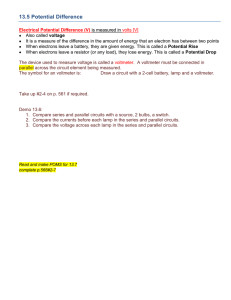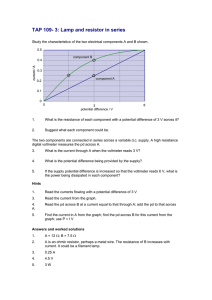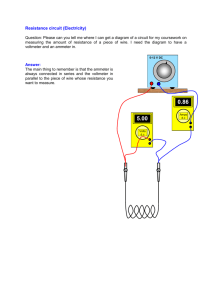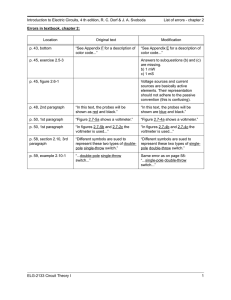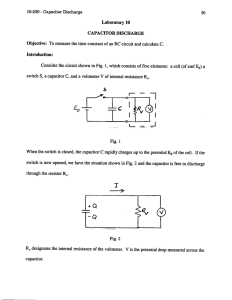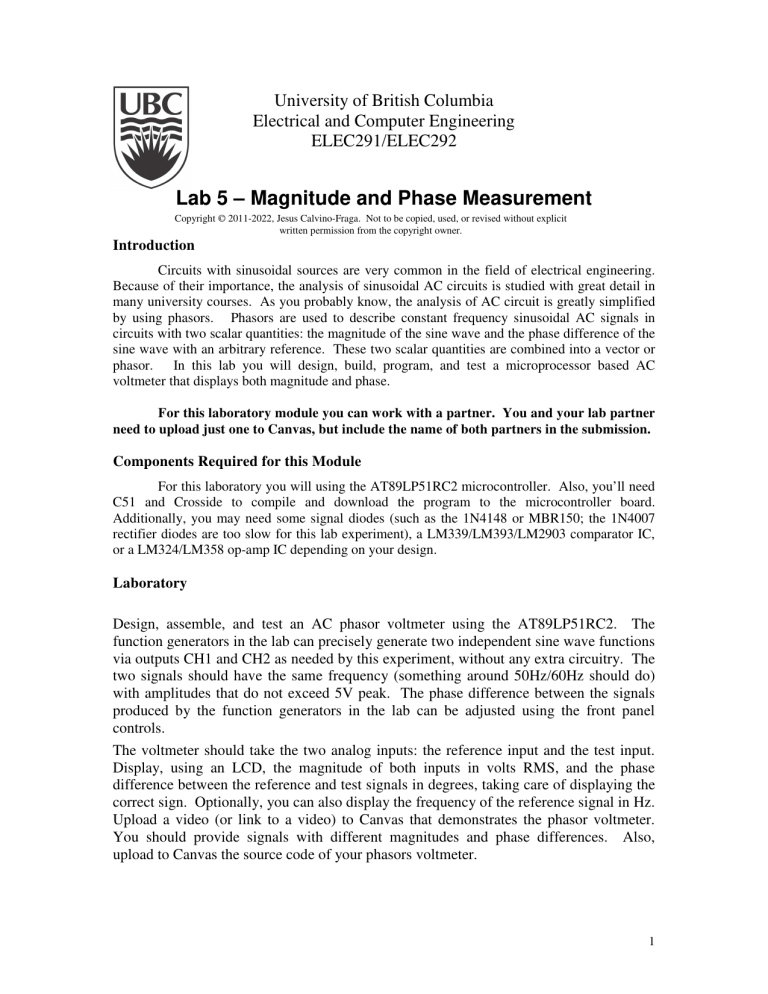
University of British Columbia Electrical and Computer Engineering ELEC291/ELEC292 Lab 5 – Magnitude and Phase Measurement Copyright © 2011-2022, Jesus Calvino-Fraga. Not to be copied, used, or revised without explicit written permission from the copyright owner. Introduction Circuits with sinusoidal sources are very common in the field of electrical engineering. Because of their importance, the analysis of sinusoidal AC circuits is studied with great detail in many university courses. As you probably know, the analysis of AC circuit is greatly simplified by using phasors. Phasors are used to describe constant frequency sinusoidal AC signals in circuits with two scalar quantities: the magnitude of the sine wave and the phase difference of the sine wave with an arbitrary reference. These two scalar quantities are combined into a vector or phasor. In this lab you will design, build, program, and test a microprocessor based AC voltmeter that displays both magnitude and phase. For this laboratory module you can work with a partner. You and your lab partner need to upload just one to Canvas, but include the name of both partners in the submission. Components Required for this Module For this laboratory you will using the AT89LP51RC2 microcontroller. Also, you’ll need C51 and Crosside to compile and download the program to the microcontroller board. Additionally, you may need some signal diodes (such as the 1N4148 or MBR150; the 1N4007 rectifier diodes are too slow for this lab experiment), a LM339/LM393/LM2903 comparator IC, or a LM324/LM358 op-amp IC depending on your design. Laboratory Design, assemble, and test an AC phasor voltmeter using the AT89LP51RC2. The function generators in the lab can precisely generate two independent sine wave functions via outputs CH1 and CH2 as needed by this experiment, without any extra circuitry. The two signals should have the same frequency (something around 50Hz/60Hz should do) with amplitudes that do not exceed 5V peak. The phase difference between the signals produced by the function generators in the lab can be adjusted using the front panel controls. The voltmeter should take the two analog inputs: the reference input and the test input. Display, using an LCD, the magnitude of both inputs in volts RMS, and the phase difference between the reference and test signals in degrees, taking care of displaying the correct sign. Optionally, you can also display the frequency of the reference signal in Hz. Upload a video (or link to a video) to Canvas that demonstrates the phasor voltmeter. You should provide signals with different magnitudes and phase differences. Also, upload to Canvas the source code of your phasors voltmeter. 1
